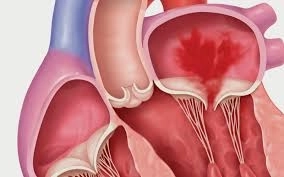
When Is Mitral Valve Surgery Needed? Dr. Bassem Ramadan
Published on: 2025-06-30 | Written by: . Dr. Basem Adel Ramadan Cardiothoracic
Professor Dr. Bassem Adel Ramadan, Professor of Cardiothoracic Surgery at the Faculty of Medicine – Alexandria University, explains in this article the conditions that require surgical intervention for mitral valve disease, the difference between valve repair and replacement, and the latest techniques used to ensure the highest success rates.
What Is the Mitral Valve and Why Is It Important?
The mitral valve is located between the left atrium and left ventricle of the heart. It controls one-way blood flow within the heart.
According to Professor Dr. Bassem Adel Ramadan, any malfunction in this valve can lead to reduced cardiac efficiency, fatigue, and shortness of breath.
When Is Mitral Valve Surgery Required?
-
Mitral Regurgitation:
Occurs when the valve doesn't close tightly, causing blood to flow backward into the atrium. -
Mitral Stenosis:
Usually due to old rheumatic fever, it causes narrowing of the valve and impedes blood flow. -
Infective Endocarditis:
A bacterial infection that damages valve tissue and often requires urgent surgery. -
Congenital defects or rupture of valve leaflets or chords.
When Should Surgery Be Performed?
Professor Dr. Bassem Adel Ramadan notes that surgery becomes necessary in cases of:
-
Severe symptoms, such as shortness of breath and fatigue
-
Reduced left ventricular function (ejection fraction < 60%)
-
Pulmonary hypertension or heart enlargement
-
Failure of medication to manage symptoms
Repair vs. Replacement – What's Better?
According to Professor Dr. Bassem Adel Ramadan, valve repair is generally preferred when feasible because:
-
It preserves the native heart structure
-
It does not require lifelong anticoagulation
-
It offers long-term durability
Valve replacement becomes necessary when the valve is too damaged. Options include:
-
Mechanical valves: long-lasting but require lifelong anticoagulants
-
Biological valves: no lifelong anticoagulation, but shorter lifespan (10–15 years)
Modern Surgical Techniques:
As explained by Professor Dr. Bassem Adel Ramadan, recent advancements include:
-
Minimally invasive surgery with smaller incisions
-
Video-assisted mitral valve surgery (in selected cases)
-
Advanced myocardial protection during surgery
-
Use of high-quality, internationally certified valve prostheses
Conclusion
Mitral valve surgery is a precise, life-improving procedure when performed at the right time and by an experienced surgical team. Professor Dr. Bassem Adel Ramadan emphasizes the importance of early diagnosis and regular monitoring of heart function. With today's advanced techniques and intensive care protocols, surgical outcomes have become safer and more effective, allowing patients to return to a normal life more quickly.

